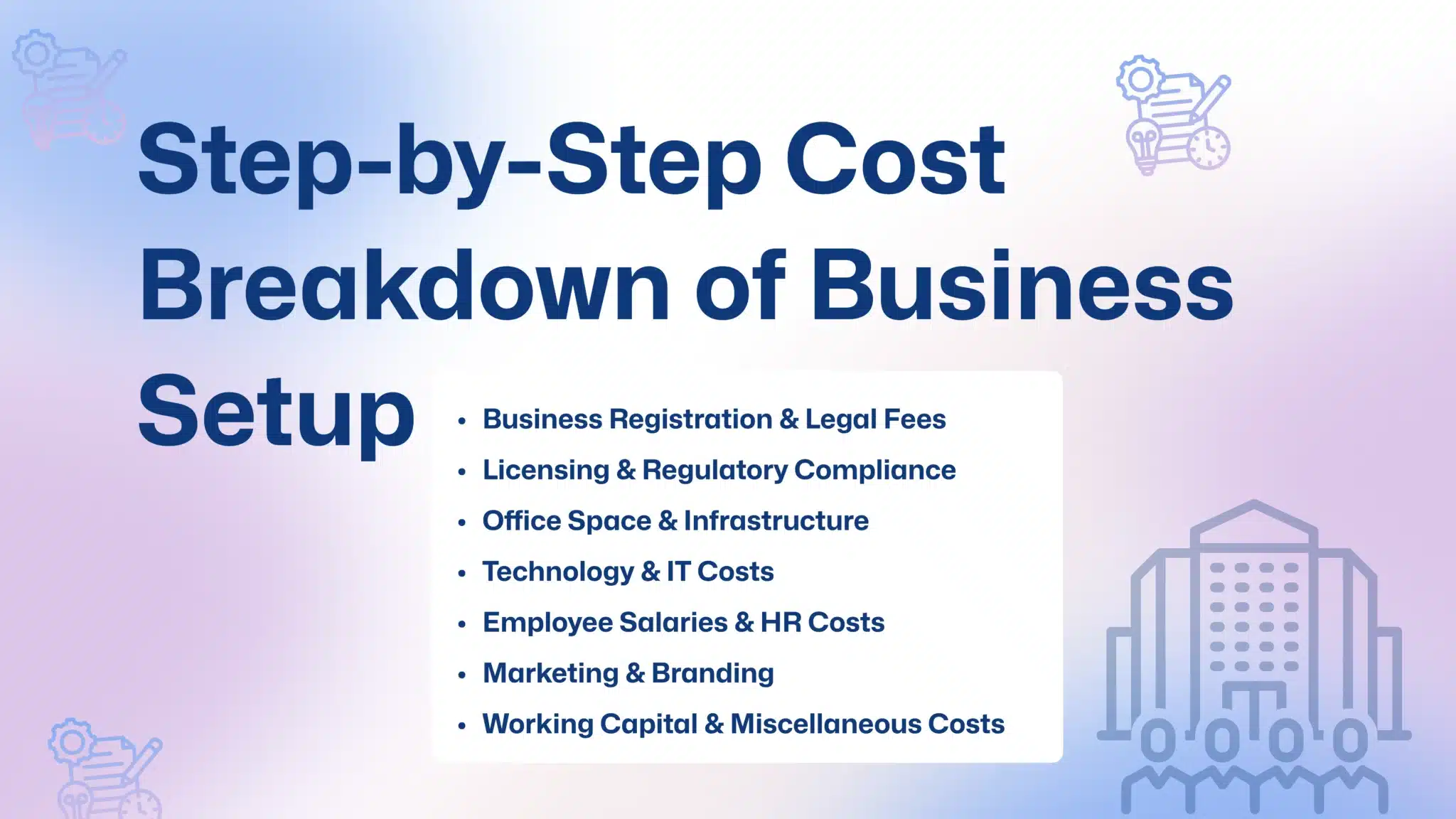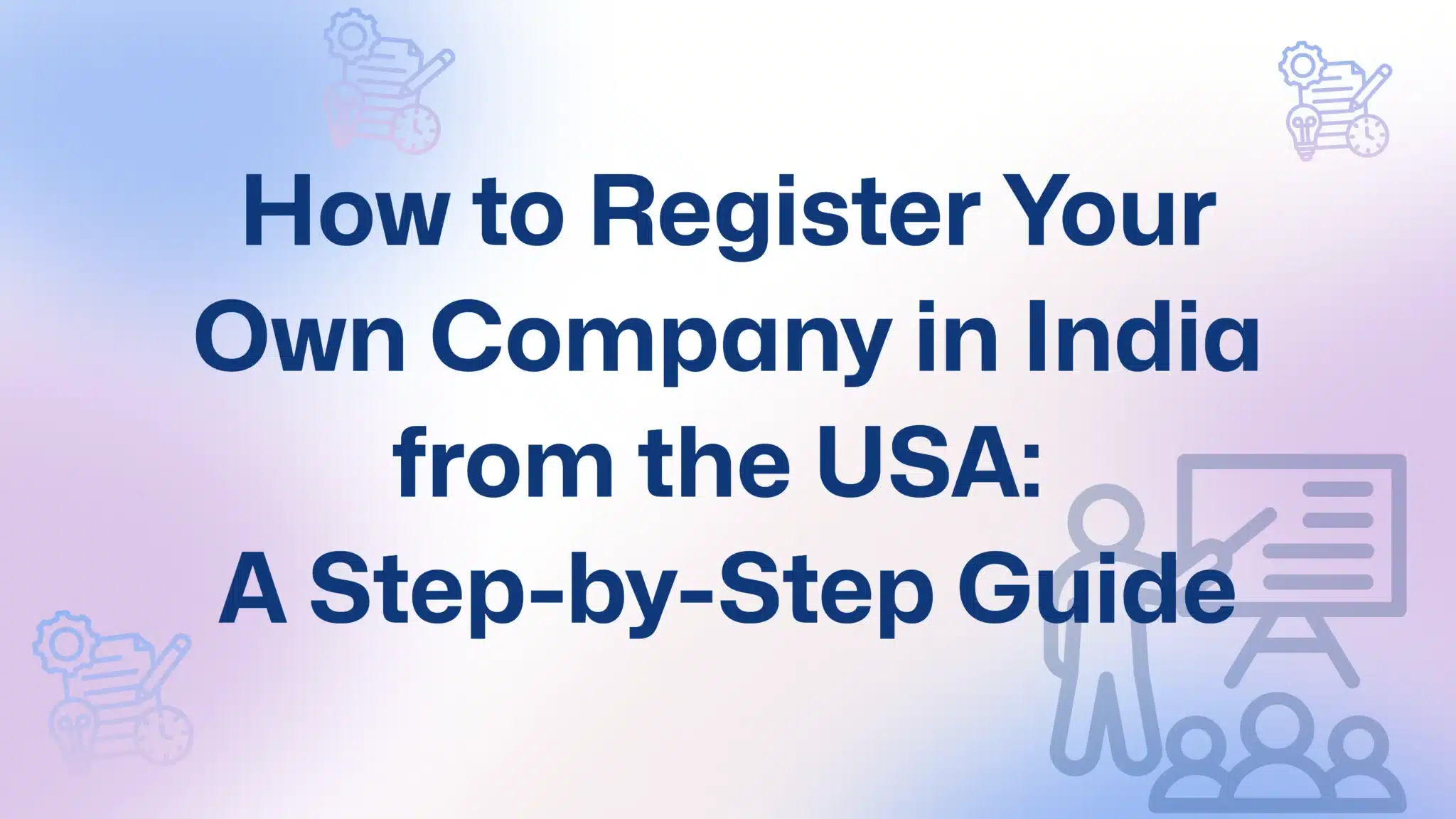Starting a business in India is easier today than ever before. With government support, digital tools, and a growing startup culture, more people are turning their ideas into reality. But one big question remains—what does it cost to set up a business in India?
The cost depends on many things. It changes with the type of business, the city you choose, the industry you enter, and how big you plan to start. A small proprietorship costs less to register, while a private limited company costs more and needs regular filings. Other options, like an LLP or a one-person company, fall somewhere in between.
In this guide, we’ll look at all the main costs—like registration, licenses, office space, staff, technology, and marketing. We’ll also explore the challenges new founders face, like rules, taxes, and competition, and share simple tips to save money and stay on track.
By the end, you’ll know how much it may cost to start a business in 2025, how to plan your money, and the first steps to grow it.
In This Blog, You Will Learn:
- Why India is a great place to start a new business.
- The different types of business structures and how much they cost.
- A clear step-by-step guide to business setup expenses.
- Common challenges entrepreneurs face in India.
- Tips to reduce costs and manage money efficiently.
- Best practices for successfully starting and running a business in India.
Why Start a Business in India?
India offers a huge potential for new businesses thanks to its growing economy, supportive policies, and a large market. Here’s why many entrepreneurs choose India:
- Huge Market: With more than 1.4 billion people, there are plenty of opportunities to reach customers.
- Government Support: Programs like Startup India, Make in India, and various tax benefits make it easier and more attractive to start a business.
- FDI Policies: In many industries, foreign investors can own 100% of a company without extra government approval.
- Digital Transformation: Rapid adoption of fintech, e-commerce, and digital business solutions.
Business Structures and Associated Costs
Choosing the right business structure is very important. It affects how much it will cost to start your business and how much work you need to do to stay legal. Here are the common business structures in India:
- Sole Proprietorship: A sole proprietorship is the simplest and cheapest type of business. One person owns and runs the business. It is easy to register and requires very little paperwork. However, the owner is fully responsible for all business debts. This means personal assets can be at risk if the business faces losses.
- Partnership Firm: A partnership firm is run by two or more people who share profits and responsibilities. Setting it up requires a partnership deed and registration fees. Partners share liability, which means they are personally responsible for business debts. Partnerships are common for small businesses, shops, and professional services.
- Limited Liability Partnership (LLP): An LLP is like a mix of a partnership and a company. Owners (called partners) have limited liability, which protects personal assets. The registration and compliance costs are moderate, making it suitable for service-based businesses like consulting, IT, and finance. LLPs need regular filings but are simpler than private limited companies.
- Private Limited Company (Pvt Ltd): A private limited company is ideal for businesses that want to grow and raise funds from investors. It has higher registration costs and more compliance rules compared to a proprietorship or LLP. Shareholders have limited liability, and the company is a separate legal entity. Pvt Ltd companies are good for startups, tech companies, and businesses planning to scale nationally or internationally.
- One Person Company (OPC): An OPC is designed for solo entrepreneurs who want the benefits of a private limited company. It has similar compliance and registration costs as a Pvt Ltd. The main advantage is limited liability, which protects personal assets. OPCs are a good choice for professionals, consultants, and small business owners starting alone.
Step-by-Step Cost Breakdown of Business Setup

1. Business Registration & Legal Fees
- Company Registration: Costs vary by entity type (LLP, Pvt Ltd, OPC, etc.).
- Professional Fees: Legal consultants or CA/CS charges for documentation and filings.
- Government Filing Fees: Includes MCA, Registrar of Companies (ROC), and other approvals.
2. Licensing & Regulatory Compliance
- GST Registration: Required if your business earns more than a certain amount each year.
- MSME Registration: Helps small businesses get government benefits and support.
- Industry-Specific Licenses: Some businesses need special licenses, like FSSAI for food, trade licenses, or pollution clearances.
3. Office Space & Infrastructure
- Co-working Spaces: Cost-effective for startups.
- Commercial Offices: High rental costs in metro cities; lower in Tier-2 and Tier-3 cities.
- Virtual Offices: Good for businesses that need an official address but don’t need a full office space.
4. Technology & IT Costs
- Website & Domain Registration: Costs depend on website complexity.
- Software & Applications: CRM, ERP, cybersecurity, and digital tools.
- IT Support & Cloud Services: Hosting, security, and online tools add to operational expenses.
5. Employee Salaries & HR Costs
- Entry-Level Employees: Lower salaries.
- Mid-Level Professionals: Moderate salary range.
- Senior Management: Higher costs with additional benefits.
- Freelancers & Contractors: Flexible but may involve premium payments.
6. Marketing & Branding
- Social Media & Digital Ads: Google Ads, Facebook, LinkedIn, and influencer marketing.
- SEO & Content Marketing: Blog writing, website optimization, and search ranking improvements.
- Print & Traditional Ads: Newspapers, billboards, and television advertising.
7. Working Capital & Miscellaneous Costs
- Raw Materials & Inventory: For manufacturing and retail businesses.
- Business Insurance: Protects against liabilities and operational risks.
- Utilities & Maintenance: Electricity, water, internet, and infrastructure upkeep.
Challenges in Setting Up a Business in India
Complex Regulatory Framework
Despite efforts to simplify business registration, bureaucratic delays in obtaining licenses persist.
High Real Estate Costs
Commercial rent remains a significant expense, especially in metro cities.
Compliance & Taxation Burden
Businesses must comply with GST, corporate tax, and professional tax regulations.
Competitive Market
Some industries, like e-commerce and food delivery, need a lot of money for marketing and branding to get noticed.
Cost Optimization Strategies for Entrepreneurs
- Leverage Government Schemes: Utilize incentives like Startup India and tax exemptions.
- Adopt a Lean Business Model: Use co-working spaces, outsourcing, and digital tools.
- Automate Business Processes: Reduce manual work and operational expenses with technology.
- Bootstrap & Seek Investor Support: Start with minimal capital and gradually expand, or secure funding from investors.
Final Thoughts
Starting a business in India needs careful planning and knowing the costs. The costs can change based on your business type, location, and size. You can save money by picking the right business model, using digital tools, and taking advantage of government schemes.
Even with challenges like rules, taxes, and running costs, India is still a good place for startups that want to grow over time. By managing setup and daily expenses wisely, you can build a business that lasts and makes profit.
Good planning, smart decisions, and expert guidance can make starting a business easier. For tips on costs, compliance, and investments, follow FinGuruIndia for the latest updates.
Connect with an expert to set up a business in India. Book a Consultation with Our Expert!
📞 Call Us: +91-9999127022 🌐 Visit: www.Finguruindia.com
Frequently Asked Questions (FAQs)



